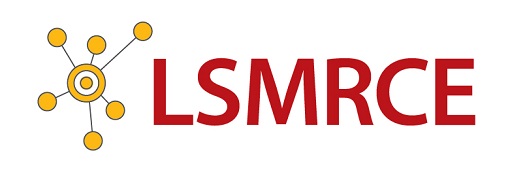OPENING KEYNOTE
Saturday, October 26, 8:30a, Plaza Ballroom
Classrooms to Careers: Leveraging mentorship and opportunity to help students succeed
Aprille Joy Ericsson, Ph.D.
NASA Goddard Space Flight Center (GSFC)
Instrument Systems and Technology Division
New Business Lead
Aerospace Engineer, Technologist, Project and Program Manager
Abstract
Dr. Ericsson will share stories of her journey from the classrooms at Howard University (HU) and Massachusetts Institute of Technology (MIT) to her career at NASA.
Dr. Ericsson will draw upon her experiences as a minority, female, in an all-male dominated field to illustrate the importance of students to take advantage of opportunities and resources.
Students are called to action to be fearless in asking for help or guidance from mentors and community members, as well as, be persistent through adversity and challenges.
Dr. Ericsson’s presentation will address the critical role of mentors in the success of future STEM leaders.
Mentors are instrumental in encouraging, guiding, and connecting students to resources and opportunities.
Bio
During her 25+ year tenure with NASA, Dr. Aprille Joy Ericsson has held numerous positions.
In 2017, Dr. Ericsson assumed the position of New Business Lead for the NASA GSFC Instrument Systems and Technology Division.
Just prior to that position, she served as the Capture Manager for a proposed Astrophysics mid-sized Class Explorer, called STAR-X.
Prior to that proposal development, Dr. Ericsson served as the NASA GSFC Program Manager for SBIR/STTR in the Innovative Technology Partnerships Office.
This SBA funded program enables small businesses and small businesses collaborating with universities, respectively, to compete for opportunities to solve selected R&D challenges faced by various government agencies within the United States.
Formerly, she served as the Deputy to the Chief Technologist for the Engineering and Technology Directorate with a focus on cubesat and smallsat mission development.
She has also served at NASA HQs as a Program Executive (PE) for Earth Science, and a Business Executive for Space Science.
For 10 years, Dr. Ericsson was an Instrument Project Manager (IPM) has led spaceflight mission teams and proposal developments for various instruments that include the Near-Infrared Spectrograph on the James Webb Space Telescope; the Project Engineer for the Lunar Orbiter Laser Altimeter which launched April 2009 on the Lunar Reconnaissance Orbiter;
and, Instrument Proposal Manager for a Mars mission, SCIM. For 3.5 years she served as the Acting IPM and Deputy IPM for ICESat-2’s sole instrument the Advanced Topographic Laser Altimeter System (ATLAS, launched 2018), a $500M LIDAR instrument which continues to provide important observations of ice-sheet elevation change, sea-ice freeboard, and vegetation canopy height begun by ICESat (-I), on which Dr. Ericsson was PE in 2003.
Dr. Ericsson first joined GSFC as an Attitude Control Systems analyst, where she developed practical control methods, and analyzed structural dynamics for several spacecraft missions and concepts.
She has served as an Adjunct Faculty member at several Universities. Currently, she sits on Academic boards at the National Academies, MIT and previously at Howard University (HU) as a Trustee.
She is lead Advisor for the DMV NSBE Jr. Chapter at HU. She is the Chair of the Advisory Board for HU Department of Mechanical Engineering.
Dr. Ericsson received her B.S. in Aeronautical/Astronautical Engineering from MIT. She received her Masters of Engineering and Ph.D. in Mechanical Engineering at HU with an Aerospace option.
Her graduate school research at HU was developing control methods for orbiting large space platforms like ISS.
Dr. Ericsson has been honored with numerous awards, some of the most prestigious are from the Western Society of Engineers, "The 2016 Washington Award", and The Engineering Honor Society, Tau Beta PI, Distinguished Alumnus.
She is proud to be the first (African American) female to receive a Ph.D. in Mechanical Engineering from HU; the first American to receive a Ph.D. in Mechanical Engineering, the Aerospace option from HU; and the first African American female to receive a Ph.D. in Engineering at NASA GSFC.
Social Media

